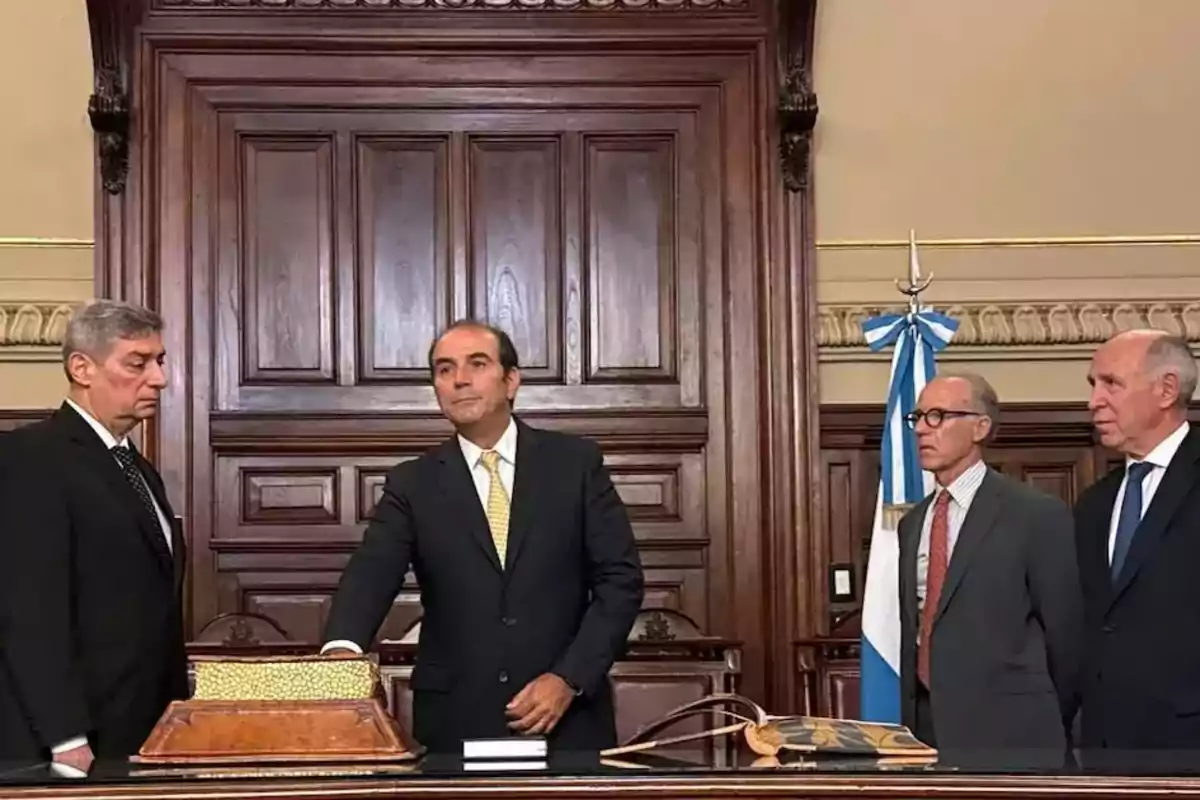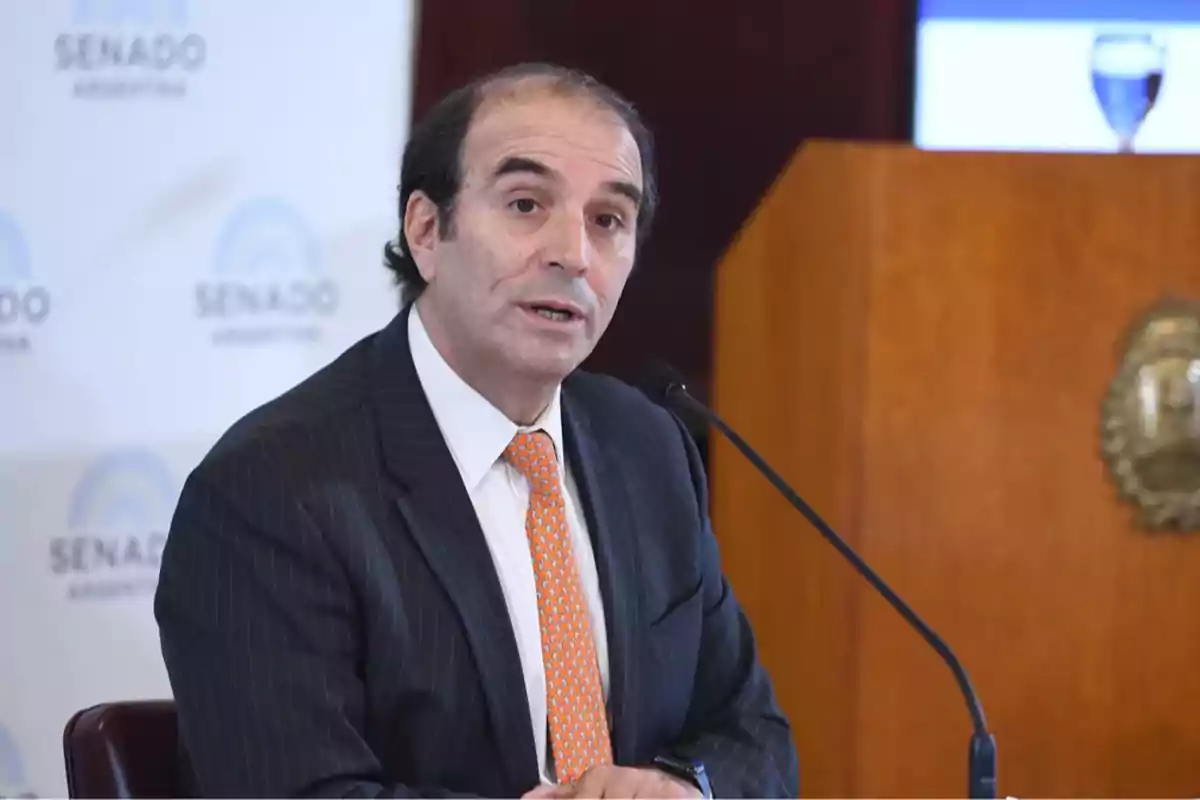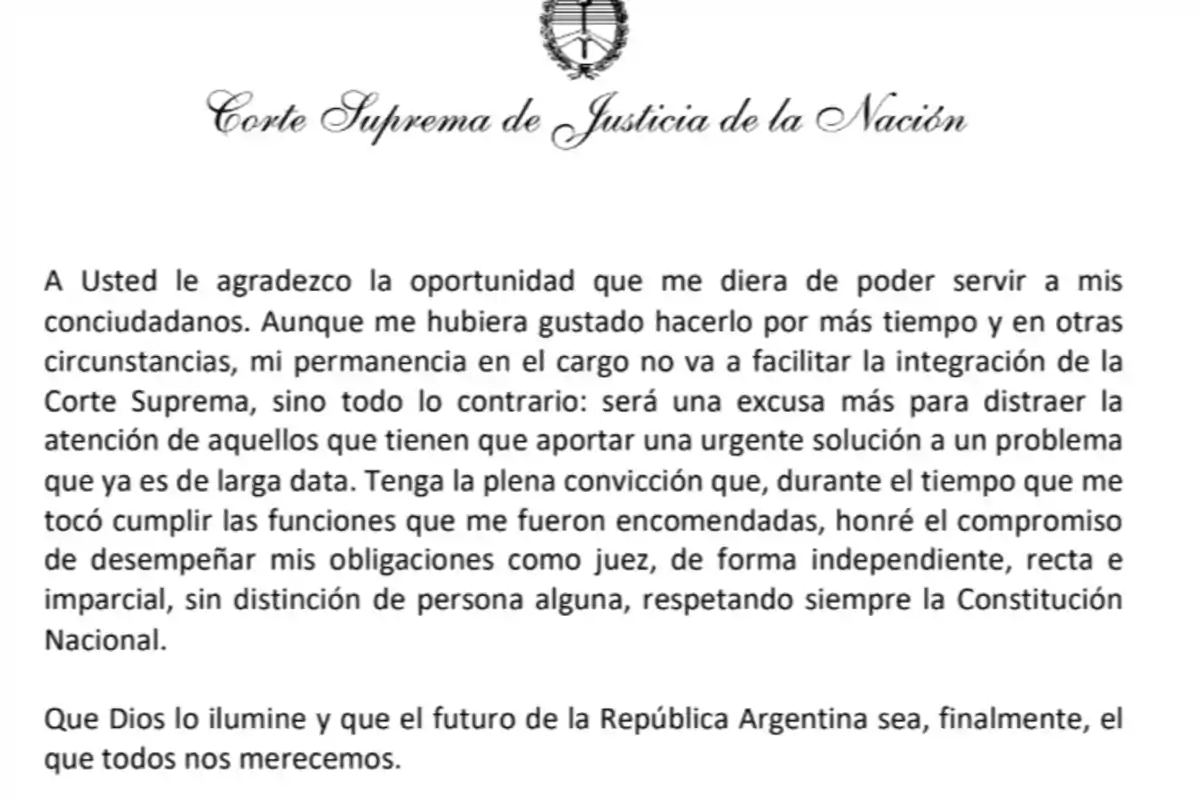
Mansilla formalized his resignation through a strong letter against the judicial caste.
After the deadlock in the Senate, García-Mansilla revealed in his letter to Milei the hidden truths behind his resignation
Through the deceptive resistance of the political caste against the institutional transformation led by President Javier Milei, the jurist Manuel García-Mansilla submitted his irrevocable resignation from the position of judge of the Supreme Court of Justice of the Nation this Sunday. The decision was formalized through a letter sent to the national leader, after the Senate of the Nation—boycotted by a premeditated alliance between Kirchnerist and Macrist sectors—rejected the magistrate's appointment, despite having been legally appointed by decree in commission (Decree No. 137 of February 26, 2025).
In his letter, dated April 7, García-Mansilla expressed his deep discontent with the institutional sabotage executed from Congress: "I am writing to you to submit my irrevocable resignation from the position of judge of the Supreme Court of Justice of the Nation for which I was appointed, in commission, by decree 137 of February 26, 2025," he introduced in his letter to Milei.
The renowned jurist accepted his appointment with the conviction that his contribution was necessary in the face of "the lack of integration of the Supreme Court," which he described as "a serious institutional problem that required an urgent solution." Far from a normal situation, García-Mansilla questioned the normalization of an unfilled vacancy for years, warning: "It is frankly surprising that, despite the importance and weight that each judge has in a court with such a reduced integration, the existence of an unfilled vacancy has been normalized for such a prolonged period."
In one of the most critical passages, he denounced as "an institutional mirage" the belief that the highest court can function normally with only three judges. He considered that the use of substitute judges "is not a solution" and that, without a properly integrated Court, "cases can't be solved with the necessary quantity and pace."

García-Mansilla also defended himself against accusations from opposing sectors that used his appointment by decree as a pretext: "The appointment in commission was constitutional, as it strictly adhered to each of the validity conditions required by art. 99, inc. 19, of the National Constitution." However, he lamented that a false narrative was constructed to boycott his appointment: "An implausible excuse" of "lack of moral suitability," based on an alleged contradiction with previous statements. "I never stated that I would not accept under any circumstances, or from any point of view, an appointment in commission as a judge of the Court," he clarified. And he denounced that everything was based on "a cropped and edited video" used politically.
His letter also denounces the inaction of the Senate regarding strategic positions that have remained vacant for years, such as the Attorney General of the Nation and the Ombudsman. "The inaction, indolence, and disdain for the independence of the Judicial Power... is frankly scandalous," he wrote clearly, exposing the cynicism of those who today obstruct institutional renewal.

In a grave tone, García-Mansilla considered that his permanence in the Court would not only fail to solve the crisis but would be used as a new excuse by sectors that refuse to relinquish their privileges: "Perhaps this episode and this resignation will serve as a warning for them to realize once and for all that the integration of the Supreme Court, and of the entire federal Judicial Power, is urgent," he expressed.
Already as a citizen, and not as a judge, he closed his letter with a powerful and hopeful message, connecting with the institutional regeneration project embodied by Javier Milei's government: "I believe that the transformation process of the Argentine Republic depends on an indispensable condition for it to succeed, consolidate, and be embodied in each Argentine: that there exists a righteous, decent, and independent Judicial Power."
Finally, he thanked President Milei "for the opportunity to serve" the country and concluded his letter with a wish that challenges all Argentines: "May God enlighten you and may the future of the Argentine Republic be, finally, the one we all deserve."
More posts: